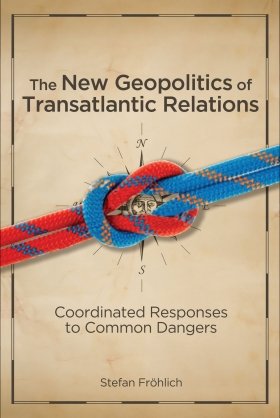The New Geopolitics of Transatlantic Relations: Coordinated Responses to Common Dangers

Related Event
-
The United States and Europe encounter many of the same foreign policy challenges, challenges that diversely impact the two regions and produce different—but often complementary—responses. In regard to Russia’s renewed assertiveness, for example, the issue for the United States is one of global competition, whereas Europe’s concern is local because Russia is a major supplier of oil and gas. Where the United States may pursue confrontation, Europe is more likely to operate with conciliation. This book develops a framework for future U.S.-Europe relations as the two world powers work toward meaningful and logical solutions to their shared foreign policy problems.
The author identifies commonalities and differences in the two regions’ economic aims, political habits, and cultural history. What Europe and the United States share means that their future relations should and will be more than occasional collaborations, even if they no longer pursue a common mission. Ultimately, the book sets forth a new transatlantic agenda by discussing principal areas of concern.
Stefan Fröhlich is a professor of international politics at the University of Erlangen-Nürnberg, Germany. He was a public policy scholar at the Woodrow Wilson Center in 2007.
A book launch event was held at the Wilson Center on February 23, 2012.
Author
Stefan FröhlichFormer Public Policy Scholar;
Professor, International Politics at the University of Erlangen-NürnbergBrowse Insights & AnalysisExplore More
Browse Insights & Analysis
Chechnya as a Model of Modern Russia
Posted date/time:
Environmental Peacebuilding: The Year in Review and the Year Ahead
Posted date/time:Source: New Security Beat

